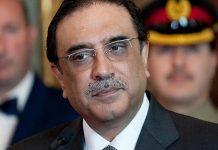People in the Middle East spend close to 58 million more hours on Facebook during Ramadan and watch more YouTube videos — everything from beauty tips and recipes to sports and TV dramas — than any other time of the year, making the holy month not only the most important one for Muslims, but also the prime time of the year for advertisers.
For Facebook, which also owns Instagram, and Google, which owns YouTube, Ramadan brings a welcome boost of business in the region.
“Consumption and time spent on our platforms does indeed increase,” said Ramez Shehadi, Facebook’s managing director for Mideast and North Africa.
People stay up a lot more at night during Ramadan and have more downtime — especially before iftar, the evening meal that breaks the daylong fast, and the sabur when people gather to eat before another day of fasting. All that translates to 5% more time spent on Facebook’s platforms, or what is nearly 58 million more hours, Shehadi said. Put another way, there are almost 2 million hours of additional time spent daily on Facebook in the Mideast during Ramadan. Ramadan is also the peak season for advertising in the region, as TV dramas and soap operas get a 151% increase in viewership on YouTube during the holy month, according to Google.
Google does not disclose total watch time for YouTube during Ramadan, but says that in Egypt, Saudi Arabia and the United Arab Emirates, for example, viewing of sports videos jumps by 22%, travel videos by 30%, and action games, simulation and video games by 10-20% during the holy month.
People also spend 27% more time watching religious content on YouTube in Ramadan.
“To us, YouTube brings people together. We see a lot of people wanting to watch things together,” said Joyce Baz, Google’s head of communications in Mideast and North Africa.





